Mercedes Vito Bus vs Renault Espace – Performance, range & efficiency compared
Both models have their strengths – but which one suits you more?
Compare performance, efficiency, price and space directly: Mercedes Vito Bus or Renault Espace?
Costs and Efficiency: When it comes to price and running costs, the biggest differences usually appear. This is often where you see which car fits your budget better in the long run.
Mercedes Vito Bus has a slight advantage in terms of price – it starts at 36300 £, while the Renault Espace costs 37500 £. That’s a price difference of around 1212 £.
Fuel consumption also shows a difference: Renault Espace manages with 4.90 L and is therefore clearly perceptible more efficient than the Mercedes Vito Bus with 6.70 L. The difference is about 1.80 L per 100 km.
Engine and Performance: Power, torque and acceleration are the classic benchmarks for car enthusiasts – and here, some clear differences start to show.
When it comes to engine power, the Mercedes Vito Bus has a to a small extent edge – offering 237 HP compared to 200 HP. That’s roughly 37 HP more horsepower.
In terms of top speed, the Renault Espace performs somewhat better – reaching 174 km/h, while the Mercedes Vito Bus tops out at 140 km/h. The difference is around 34 km/h.
Space and Everyday Use: Whether family car or daily driver – which one offers more room, flexibility and comfort?
Seats: Mercedes Vito Bus offers slightly more seating capacity – 8 vs 7.
In curb weight, Renault Espace is distinct lighter – 1673 kg compared to 2023 kg. The difference is around 350 kg.
In terms of boot space, the Mercedes Vito Bus offers convincingly more room – 1390 L compared to 692 L. That’s a difference of about 698 L.
In maximum load capacity, the Mercedes Vito Bus performs convincingly better – up to 4990 L, which is about 2766 L more than the Renault Espace.
When it comes to payload, Mercedes Vito Bus convincingly takes the win – 1077 kg compared to 581 kg. That’s a difference of about 496 kg.
Who comes out on top?
Overall, the Mercedes Vito Bus shows itself to be dominates this comparison and secures the title of DriveDuel Champion.
It convinces with the more balanced overall package and proves to be the more versatile choice for everyday use.
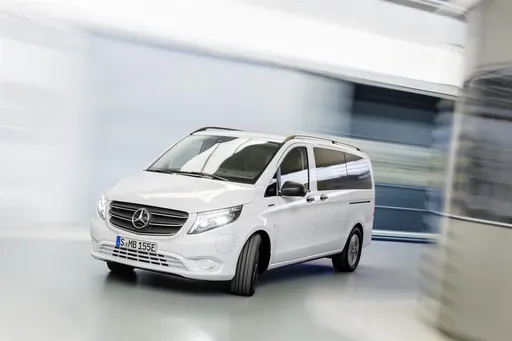
Mercedes Vito Bus
Mercedes Vito Bus
The Mercedes-Benz Vito Bus offers a versatile solution for those in need of spacious and comfortable group transportation. Its refined interior is designed to enhance passenger comfort, making it ideal for both business and leisure travel. With a focus on safety and efficiency, it provides a reliable driving experience that aligns with the high standards expected of the Mercedes-Benz brand.
details
Renault Espace
The Renault Espace is a testament to innovative design, combining versatility with comfort to offer a unique driving experience. Its sleek exterior is complemented by a spacious interior, designed to cater to the needs of families and adventurers alike. With advanced technology and a focus on safety, the Espace seamlessly blends practicality with modern sophistication, making it a standout choice in the MPV segment.
details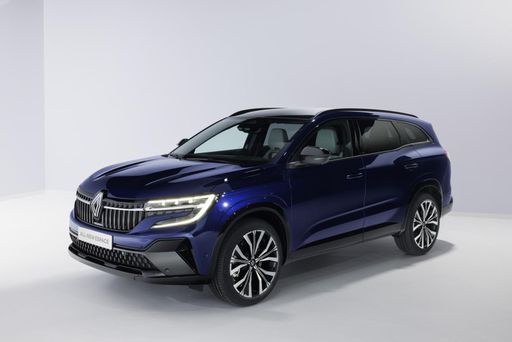 @ Renault
@ Renault
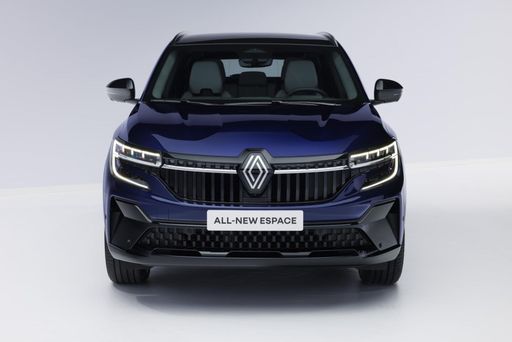 @ Renault
@ Renault
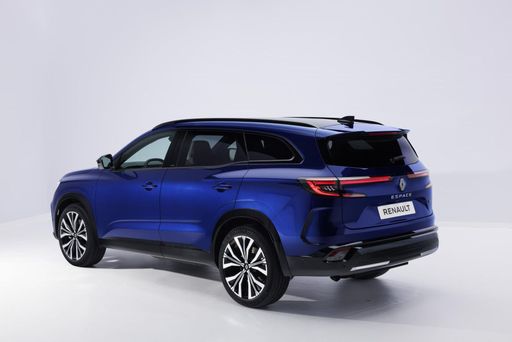 @ Renault
@ Renault
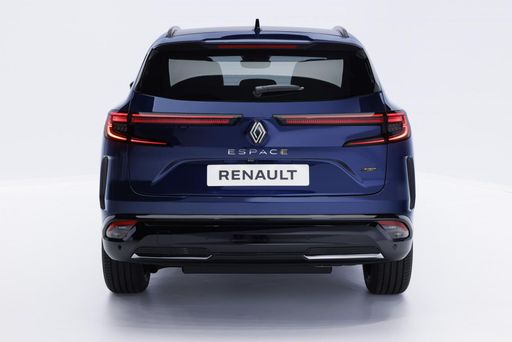 @ Renault
@ Renault
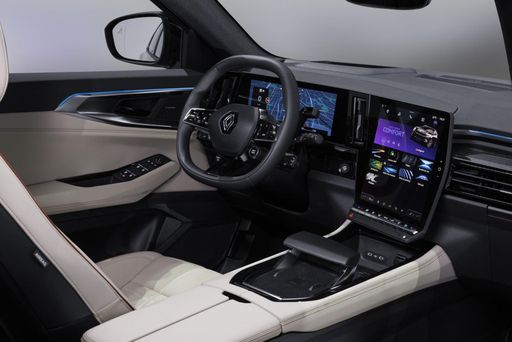 @ Renault
@ Renault

|

|
|
|
|
Costs and Consumption |
|
|---|---|
|
Price
36300 - 55900 £
|
Price
37500 - 41400 £
|
|
Consumption L/100km
6.7 - 10 L
|
Consumption L/100km
4.90 L
|
|
Consumption kWh/100km
26.7 - 26.9 kWh
|
Consumption kWh/100km
-
|
|
Electric Range
248 - 370 km
|
Electric Range
-
|
|
Battery Capacity
60 - 90 kWh
|
Battery Capacity
-
|
|
co2
0 - 228 g/km
|
co2
110 g/km
|
|
Fuel tank capacity
57 - 70 L
|
Fuel tank capacity
55 L
|
Dimensions and Body |
|
|---|---|
|
Body Type
Bus
|
Body Type
SUV
|
|
Seats
8
|
Seats
5 - 7
|
|
Doors
4
|
Doors
5
|
|
Curb weight
2023 - 2739 kg
|
Curb weight
1673 - 1783 kg
|
|
Trunk capacity
580 - 1390 L
|
Trunk capacity
212 - 692 L
|
|
Length
4895 - 5370 mm
|
Length
4746 mm
|
|
Width
1928 mm
|
Width
1830 mm
|
|
Height
1890 mm
|
Height
1645 mm
|
|
Max trunk capacity
4190 - 4990 L
|
Max trunk capacity
2054 - 2224 L
|
|
Payload
726 - 1077 kg
|
Payload
404 - 581 kg
|
Engine and Performance |
|
|---|---|
|
Engine Type
Diesel, Electric, Petrol
|
Engine Type
Full Hybrid
|
|
Transmission
Automatic
|
Transmission
Automatic
|
|
Transmission Detail
Automatic Gearbox, Reduction Gearbox
|
Transmission Detail
Automatic Gearbox
|
|
Drive Type
Rear-Wheel Drive, All-Wheel Drive, Front-Wheel Drive
|
Drive Type
Front-Wheel Drive
|
|
Power HP
136 - 237 HP
|
Power HP
200 HP
|
|
Acceleration 0-100km/h
-
|
Acceleration 0-100km/h
8.80 s
|
|
Max Speed
140 km/h
|
Max Speed
174 km/h
|
|
Torque
330 - 500 Nm
|
Torque
-
|
|
Number of Cylinders
4
|
Number of Cylinders
3
|
|
Power kW
100 - 174 kW
|
Power kW
147 kW
|
|
Engine capacity
1950 - 1999 cm3
|
Engine capacity
1199 cm3
|
General |
|
|---|---|
|
Model Year
2024
|
Model Year
2025
|
|
CO2 Efficiency Class
G, A
|
CO2 Efficiency Class
C
|
|
Brand
Mercedes-Benz
|
Brand
Renault
|
What drive types are available for the Mercedes Vito Bus?
The Mercedes Vito Bus is offered with Rear-Wheel Drive, All-Wheel Drive or Front-Wheel Drive.
The prices and data displayed are estimates based on German list prices and may vary by country. This information is not legally binding.
